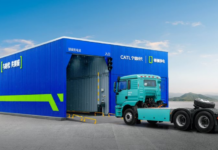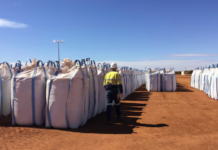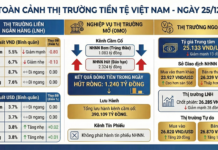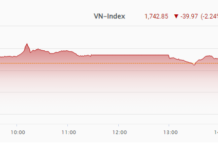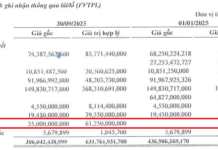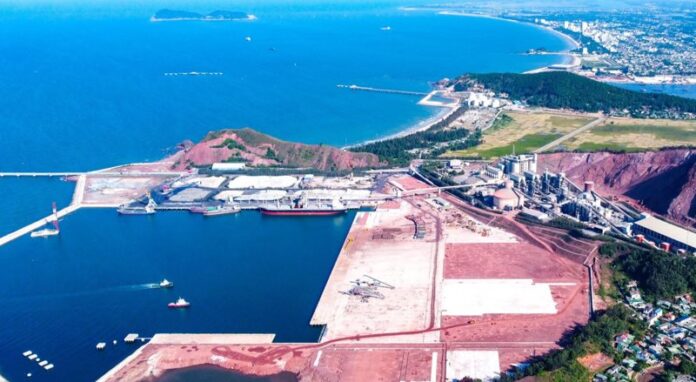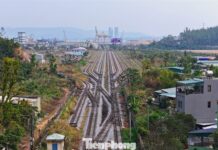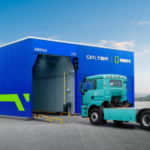The Standing Committee of the Nghe An Provincial Party Committee has approved the adjustment of the construction and business project for the Cua Lo Deep-water Port at its July 2024 regular meeting.
Specifically, the Cua Lo Deep-water Port will feature three berths, including two berths for vessels with a maximum capacity of 50,000 DWT and one berth for a 100,000 DWT vessel, with a total length of 800 meters. It will also include auxiliary structures such as a 1,550-meter-long breakwater, a connecting bridge from the access bridge to the berths, a shipping channel, a turning basin, and a ship anchorage.
The land area for the port’s backend area is approximately 32 hectares, while the water surface area is about 208.15 hectares, accommodating offshore port constructions: berths, breakwater, connecting bridge to the berths; turning basin, anchorage, and cargo channel.
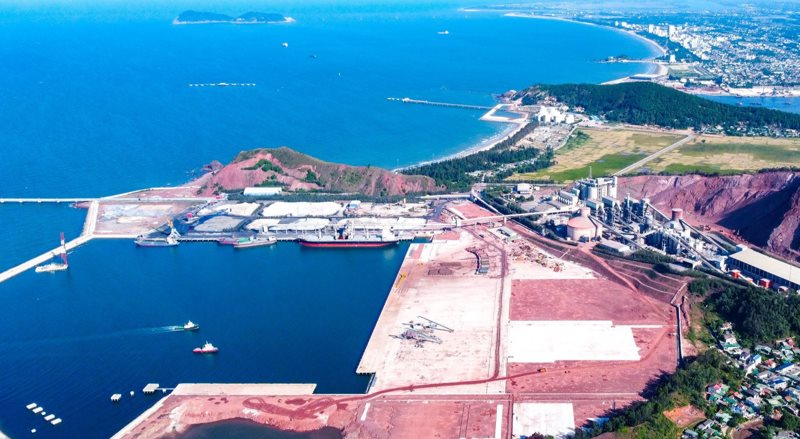
The Cua Lo Port in Nghe An province will be invested in two phases
The total investment capital for the Cua Lo Deep-water Port is estimated at VND 7,324 billion. The investment will be divided into two phases.
Phase 1 (2024 – 2028) will have a total investment of nearly VND 5,251 billion, focusing on the construction of berths No. 6 and No. 7 (50,000 DWT), 1,200 meters of breakwater, connecting bridge No. 1, shipping channel, and auxiliary maritime works, along with yard roads, architectural works, and accompanying technical infrastructure.
Phase 2 (2029 – 2030) will involve an investment of over VND 2,074 billion for the construction of berth No. 5 (100,000 DWT), an additional 350 meters of breakwater, connecting bridge No. 2, yard roads, architectural works, and accompanying technical infrastructure.
The Cua Lo Deep-water Port project will be located at the North Cua Lo Wharf (belonging to Cua Lo Port) in Nghi Loc district, Nghe An province, and will be linked to the Southeast Economic Zone. The project aims to meet the import and export needs and contribute to the socio-economic development of Nghe An province and its surrounding areas.
Cua Lo town will be merged into Vinh city
Cua Lo town is nestled between two major rivers, the Cam River in the north and the Lam River in the south. It is renowned for its beach, which stretches over 10 kilometers, featuring a gentle slope, fine sand, and crystal-clear waters, earning its reputation as one of the most beautiful beaches in North Central Vietnam.
Additionally, the town boasts several cultural relic clusters, scenic landscapes, and beautiful stone islands such as Lan Chau and Ngu Islands, offering great potential for ecological tourism development.
At its 20th meeting (a specialized session), the Nghe An Provincial People’s Council of the 18th term passed a resolution on adjusting administrative boundaries, establishing wards, and rearranging communal-level administrative units in Vinh city.
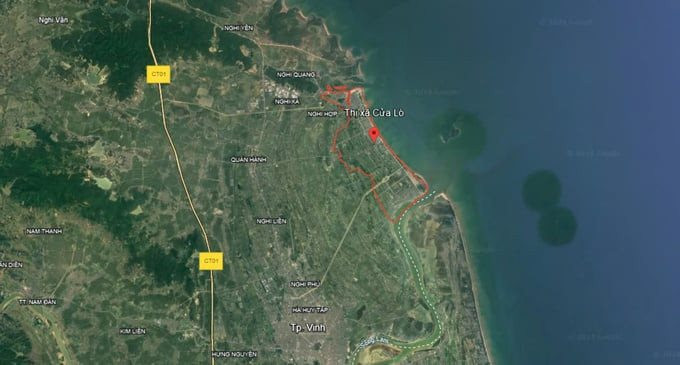
Location of Cua Lo Province
Accordingly, the entire Cua Lo town and four communes of Nghi Loc district (Nghi Xuan, Phuc Tho, Nghi Thai, and Nghi Phong) will be merged into Vinh city. Four new wards, namely Hung Dong, Hung Loc, Nghi Phu, and Nghi Duc, will be established based on the natural area and population scale of these four communes. The resolution also merges Hong Son and Vinh Tan wards into Vinh Tan ward, and combines three wards: Doi Cung, Le Mao, and Quang Trung into Quang Trung ward.
As per the resolution, the entire area of Cua Lo town, spanning over 29 square kilometers with a population of more than 57,000, will be merged into Vinh city. Six communes of Nghi Thach, Nghi Xuan, Nghi Phong, Phuc Tho, Nghi Thai, and Khanh Hop, covering an area of over 47 square kilometers and housing a population of 55,000, will also become a part of Vinh city. Following the adjustments, Nghe An province will consist of 20 districts, cities, and towns.
After the rearrangement, Vinh city will have a natural area of 166.25 square kilometers (110.83% increase) and a population of 509,713 people (339.81% increase). It will comprise 36 communal-level administrative units, including 27 wards and 9 communes.
The remaining area of Nghi Loc district will have a natural area of 313.88 square kilometers (69.75%) and a population of 202,815 people (169.01%). It will consist of 25 communal-level administrative units, including 24 communes and one township.
Vietnam’s largest province, yet still feels like a ‘tight-fitting shirt’, population of the dependent cities set to expand almost fourfold.
The Deputy Minister of Construction stated that currently, Nghệ An province is like a tight-fitting garment in terms of development. Changing the functions of urban areas will contribute to the economic and social development, not only for Vinh City but also for the entire region.
Hot issues recommended by Nghệ An businesses
Nghệ An Provincial People’s Committee Chairman Nguyen Duc Trung has assigned specific responsibilities and deadlines for relevant departments, agencies, units, and localities to respond to the business’s recommendations…

